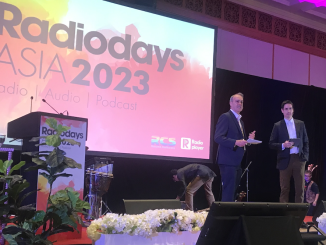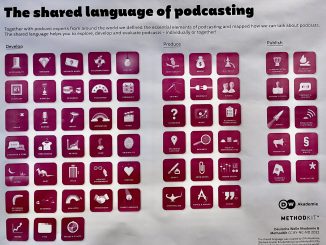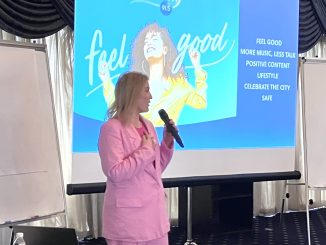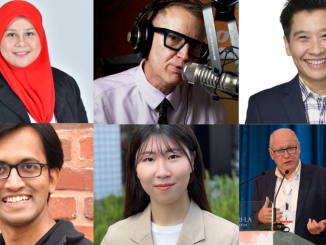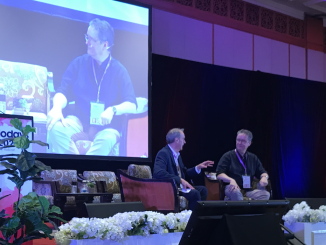
In conversation with Conversations’ Richard Fidler #RDA23
One of ABC Australia’s longest running successes is now also one of the most downloaded podcasts in the country.When the host, Richard Fidler, proposed the one hour interview program in 2006 he was told that the audience would never listen for all that time, but he knew audiences craved a deep and immersive experience.Exploring the craft skills that have made the program/podcast successful Fidler answered questions about his most memorable interviews, his preparation and the narrative arc of the program.What’s one of your favourite interviews?Australian Jill Hicks, was travelling to work in the London Underground when a bomb went off just metres away. She described the bomb exploding as being like a short intake of breath and that she had no idea what had just happened. The scarf she’d tied around her neck earlier, became the tourniquet Jill used to stem the bleeding from her torn legs.“Jill told her story so powerfully that I had no idea the ABC news theme kicked in,” said Richard. “Our audience responds to everyday people because listeners can measure their own lives against them.”Do you need to know how to craft a story to tell the story?Richard and his producer prepare long detailed pre-interviews for each guest.He has a narrative arc in mind for each story. In an interview a listener can go where they like, but after his research Richard is confident he can steer the interview.“Don’t talk over your guests and let people talk,” said Richard. He spoke about interviewing Angela Lansberry ,who Richard realised had never been given the opportunity to speak uninterrupted so no interviewer had unlocked the rich detail of her work and her life. His Conversation with her corrected this and found her stories fascinating.“Always prepare carefully and let subjects talk,” advised Richard.Richard can “hear the sound of people listening” when he leaves room for silence in interviews. This allows the guest time to think and the audience to dwell more deeply on what they’ve heard.What is the structure of the program?A dreamy musical beginning leads to a story introduction, which signals the end of the audience’s mind chatter from all that they heard earlier in the day and allows them to escape into someone else’s life. He usually ends with a reflective point about what the guest has learnt. The listener then comes back into their own lives when the program ends.How is making live radio different from making podcasts? The program began in 2005 and has grown to a 70 million audience. “We’ve been making a podcast that is broadcast for years,” he saidMy model is “me, the guest and the listener.” We interview the guest in a nondescript studio so that we do everything we can to help them feel comfortable.“As the interviewer, I believe it’s important to drop the mask of omniscience…You can then open up your interview to surprise and shock… don’t be afraid not to know everything about your subject,” said Richard.Why? and Really? Are two of the best questions to ask. When answering, people often blurt out the truth because don’t have time to make up a prepared answer.“This model of program can be done anywhere in the world, interviewing every day people and telling their powerful story. For it to be successful the interviewer needs to engage their authentic curiosity, this is the motor of your interview. Authentic curiosity is essential for any interview,” ended Richard. […]

